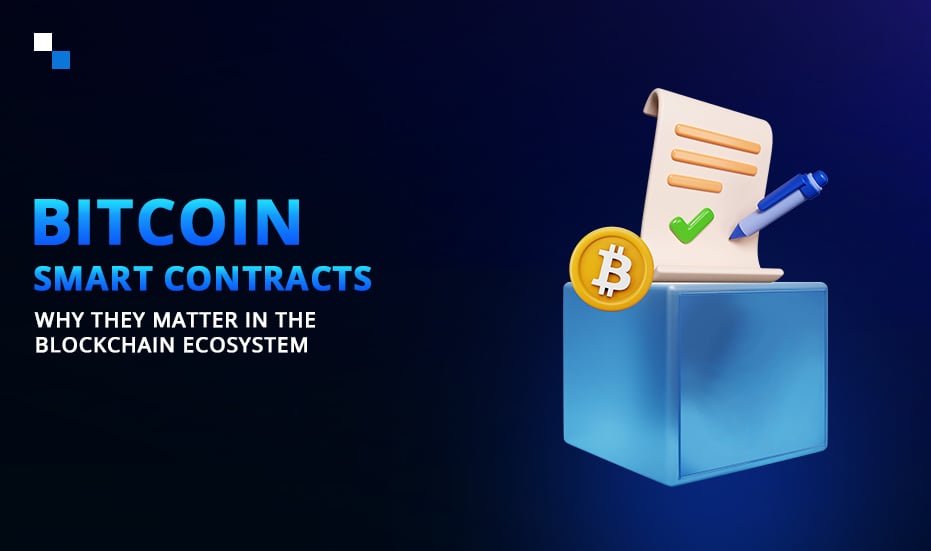
Is There a Need for Blockchain Supply Chain Solutions?
May 31, 2023
ICO Development – An Ideal Choice For Business Fundraising
May 31, 2023Besides playing a crucial role in several sectors of the economy, Blockchain also provides a way to tackle the effects of climate change in the form of carbon credits. The traditional carbon credit software system involves the complex process of buying and selling carbon credits that are difficult to track at the same time. In such a case, Blockchain comes to the rescue. From eliminating the double-counting problem to giving more life to standardization, carbon credits backed by Blockchain are emerging as a great model to control the effects of GHG (Greenhouse gas) emissions.
This blog provides you with a comprehensive overview of how Blockchain technology in carbon credits can be leveraged for efficient carbon trading as well as achieve a sustainable future.
What are Carbon Credits?
Carbon credits are the certificate or permit that allows organizations to emit one ton of carbon dioxide or the equivalent of other greenhouse gasses. The definition itself depicts the goal of carbon credit, i.e., reducing carbon emissions into the atmosphere.
Carbon credits are created when a company takes necessary actions to reduce its emissions, such as investing in renewable energy or implementing energy-efficient practices. These credits are further sold to other organizations that want to offset their own greenhouse gas emissions.
The concept of carbon credits was already introduced in the Kyoto Protocol in 1997 as an effective method of encouraging more companies to reduce their greenhouse gas emissions. However, the popularity of carbon credits grew more when it was backed by the powerful technology, Blockchain.
Carbon Credit vs Carbon Offset vs Carbon Trading
While discussing carbon credit, the terms ‘carbon offset’ and ‘carbon trading’ also gain traction. Explore what they are-
- Carbon Credit– The certificate or permit that enables companies to emit a certain amount (one ton) of carbon dioxide or other greenhouse gasses.
- Carbon Offset– The reduction in carbon or other greenhouse gasses refers to carbon offset. The increase in carbon storage is used to compensate for emissions that occur elsewhere.
- Carbon Trading: Another term for emission trading, carbon trading involves the buying and selling of carbon credits in order to reduce the total carbon emissions.
Challenges in Carbon Credits Transactions
- The process of buying and selling carbon credit is opaque and complicated. One of the major challenges is ensuring whether the credits are actually reducing carbon emissions or not.
- Carbon credits are bought and sold a number of times and verifying the legitimacy of each transaction is difficult. Determining the ownership and transfer of credits is not easy.
- The existing system for buying and selling carbon credits is inefficient and expensive, making it hard for smaller companies to participate.

Blockchain-based Carbon Credit Software can Help
Blockchain has the potential to resolve the challenges faced in the current carbon trading system and helps offset carbon footprints.
- The decentralized and transparent nature of the Blockchain allows the convenient buying and selling of carbon credits.
- The technology also enables companies to securely store data related to their carbon offset or credit purchases.
- Tracking the ownership and transferring of carbon credit on such a decentralized platform is also more manageable, and this is what helps ensure the credits are legitimate and reduce emissions at the same time.
- Blockchain also reduces the cost and complexity of buying and selling carbon credits, eliminating the intermediaries and streamlining the whole verification process.
Benefits of Using Blockchain Technology in Carbon Credits
There are several benefits of blockchain-based carbon credit platform development, including:
- Transparency
Blockchain provides a transparent and immutable ledger that records all carbon credit transactions and gives ease to stakeholders to track and verify the ownership, origin, and transaction of carbon credits.
- Security
The decentralized and cryptographic nature of Blockchain makes it inherently secure and reduces the risk of fraud. It also eliminates the need for intermediaries and prevents manipulation in carbon credit transactions.
- Automation
Blockchain-based carbon credit platform development also helps streamline different processes, such as issuing, transferring, and tracking carbon credits. Smart contracts automate these processes, eliminate the need for manual intervention and further reduce costs.
- Scalability
Blockchain is also scalable and has the power to handle a huge volume of transactions. Hence, carbon credit software backed by Blockchain is a well-suited solution for buying and selling carbon credits on a global scale.
- Efficiency
Blockchain-based carbon credit software automates and streamlines processes that further reduce administrative costs burdens, and enhance the speed and efficiency of the carbon credit transactions.
Leverage our Carbon Credit Platform Development Service Today!
There is no shadow of a doubt that Blockchain has the power to transform the carbon credit market by creating a secure, transparent, and decentralized platform for buying and selling carbon credits. While the carbon credit market is still growing and experiencing challenges, Blockchain can help overcome the challenges and help incentivize companies for a reduction in carbon and greenhouse gas emissions.
Antier is an ultimate carbon credit software development partner that leverages the Blockchain to create a secure and transparent environment for carbon credit buying and selling. Our expertise in Blockchain and related services make us a reliable expert for SMEs. If you’re looking for an expert to leverage Blockchain technology in carbon credit, reach out to Antier today!



